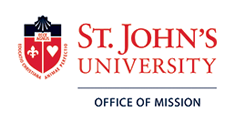Guidelines for Authors
Scope
The Journal of Vincentian Social Action is an interdisciplinary, scholarly research forum motivated by the Vincentian Mission of St. John’s University and other Vincentian organizations around the world. It is a peer-reviewed, open-access journal with a global readership published twice a year by St. John’s Scholar, St. John’s University’s digital repository and press.
The editorial team of JoVSA looks to engage all scholars and practitioners (including those not affiliated with Vincentian organizations) who are interested in sharing their work on poverty alleviation and achieving socially-just outcomes. Our emphasis is on sharing new research and practical solutions to community-defined challenges faced by marginalized and disadvantaged people — a stance that aligns well with Vincentian-inspired research, values, and intervention philosophies.
We welcome research reports, position papers, and theory development pieces, as well as conference reports and proceedings. Of particular interest are articles that:
- Demonstrate positive outcomes in the lives of individuals and groups experiencing poverty, marginalization, social upheaval, or lack of services;
- Report on the use of novel research methods and practical ways to measure the success of interventions;
- Share best practices discovered while conducting research or interventions;
- Increase awareness of both practice and theory development that emphasize scholarship and practical contributions to social justice and human development.
Types of Submissions
Standard articles for JoVSA are up to 8,000 words in length, not including tables, figures, and references. These papers are based on research that contributes to the body of knowledge about efforts toward poverty alleviation and interventions with socially-just outcomes and goals. Standard articles are double-blind and peer-reviewed.
JoVSA also publishes peer-reviewed think pieces, conference reports, and shorter communications that are up to 3,000 words in length, not including tables, figures, and references. These articles are often more reflective than standard articles.
Writing for JoVSA
In the online journal environment, readers quickly scan for interesting or relevant material. In this context, very long papers are unlikely to be read. Your paper should be thorough but concise. Your title should be clear and appealing.
Make sure the problem statement or purpose of your paper is clearly stated in the introduction. Your narrative should:
- Identify the research problem or point of the paper, and how it is relevant to the readers of JoVSA (see section on Scope above);
- Identify the literature you consulted while exploring your research problem or topic (i.e., literature review);
- Tell the reader what you did (i.e., research method) to learn about your research problem or topic or develop a new perspective for the problem or topic;
- Report on what you found (i.e., list results) or discuss and give evidence about why your argument is sound;
- Tell the reader why your work matters for researchers and practitioners who seek knowledge about practical applications for challenges faced by marginalized or under-served people. In other words, answer the question, “So what?”.
- Your overall goal is to share new information or deepen understanding of a social action topic with JoVSA
Note that JoVSA has an international audience. Please provide geographical and contextual information for your work. Your abstract should clearly state the implications of your work.
Preparing Your Manuscript for Submission
Use APA-7 Format for Tables, Figures, In-text Citation, and References
- All articles submitted to JoVSA must be original, previously unpublished work that is not currently being reviewed for publication in another venue.
- Your manuscript should be formatted into a double-spaced Word document using a 12-point font. Include page numbers.
- References and in-text citations should follow the Publication Manual of the American Psychological Association, 7th edition. The author is responsible for providing complete and accurate citations and reference lists. If your article includes incomplete citations and references, it will be returned to you for revision.
- All references must include a DOI number if available.
- Once your manuscript is accepted for publication, you will need to submit all tables and figures in separate files.
- Be sure that all tables and figures have captions and/or titles written in a sans-serif font (e.g., Arial).
Abstract and Keywords
- Your manuscript should include an abstract of about 250 words. It should state the scope of the paper, research methods used, results, conclusions, and relevance to JoVSA
- List 5-6 keywords after the abstract that will enhance discoverability in databases and search engines.
Blinding
- JoVSA uses double-blind peer-review process. You will need to blind your manuscript prior to submitting it for consideration.
- To blind your manuscript, omit your name and the name of your co-authors from the text. Use pseudonyms for for the names of institutions and participants. Do not include the the geographical location in which the research took place if it could serve to identify the authors, the participants, or the institution involved.
- If the article is accepted for publication, authors will then need to restore identifying information to the article.
Submission process
- JoVSA uses the BePress digital repository platform to manage the manuscript submission process.
- Details on submitting your submitting your article via BePress can be found here: https://scholar.stjohns.edu/cgi/submit.cgi?context=jovsa
- After you submit your article, it will be peer-reviewed by qualified readers. Based on their evaluation, your paper will be 1) accepted as is, 2) accepted pending revision, or 3) rejected.
Further Questions
If you have questions about any of the details listed here, contact Kevin Rioux, Editor, at .

